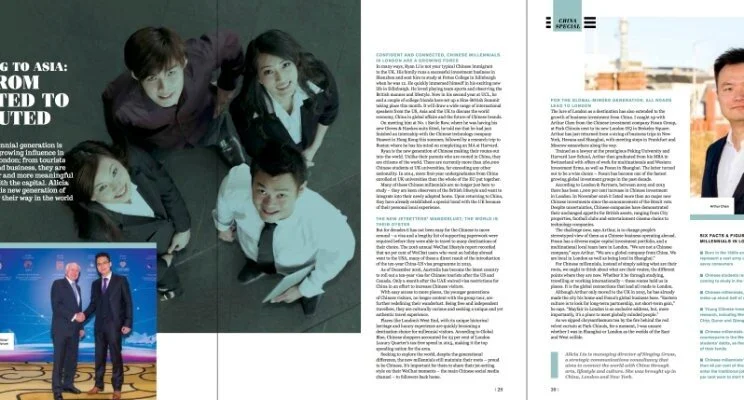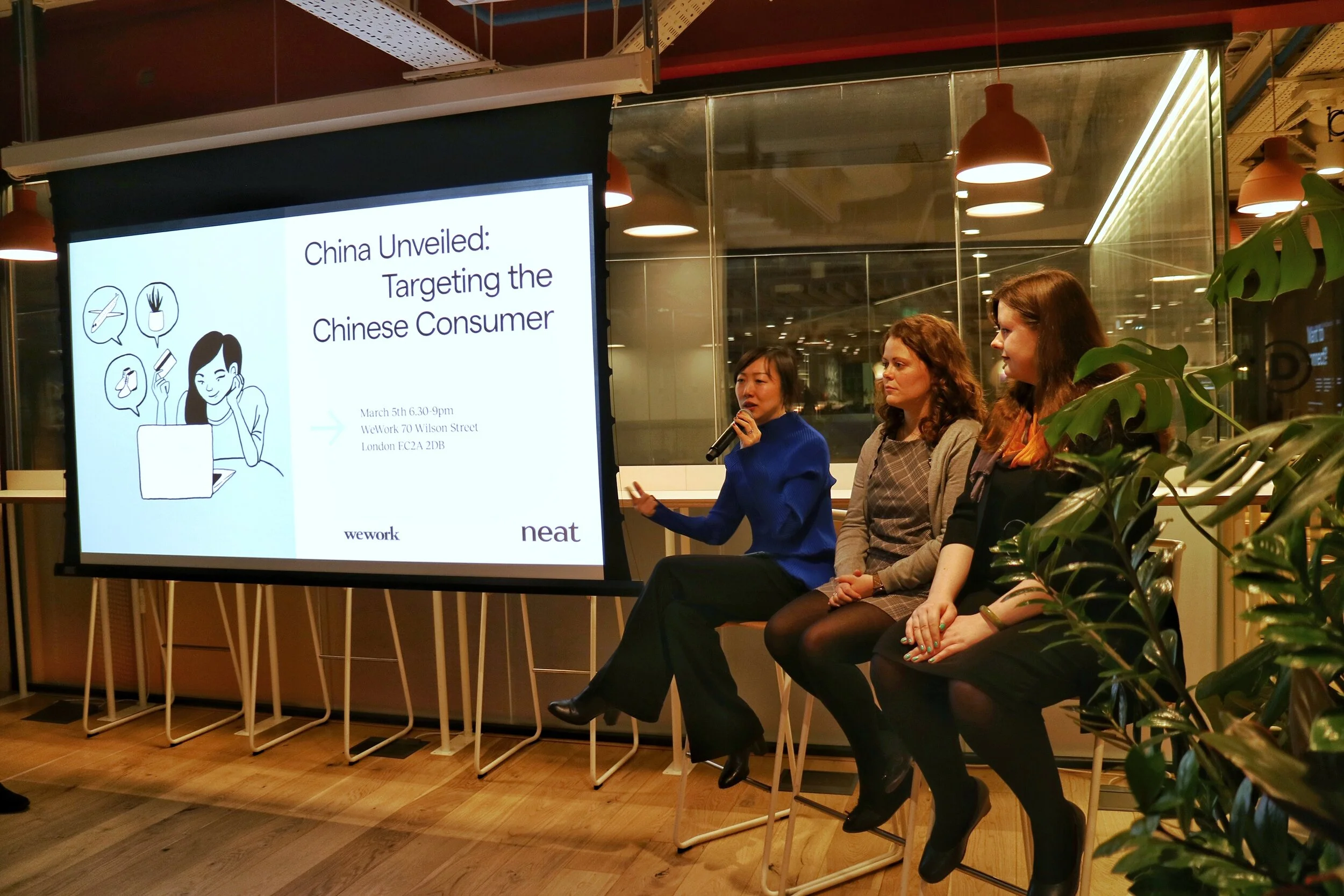Turning to Asia: From Rooted to Routed
China’s millennial generation is exercising a growing influence in the heart of London; from tourists to students and business, they are seeking a deeper and more meaningful engagement with the capital. Alicia Liu profiles this new generation of Chinese making their way into the world.
Confident and connected, Chinese millennials in London are a growing force.
In many ways, Ryan Li is not your typical Chinese immigrant to the UK. His family run a successful investment business in Shenzhen and sent him to study at Fettes College in Edinburgh when he was 12. He quickly immersed himself in his exciting new life in Edinburgh. He loved playing team sports and observing the British manner and lifestyle. Now in his second year at UCL, he and a couple of college friends have set up a Sino-British Summit taking place in February 2017. It will draw a wide range of international speakers from the US, Asia and the UK to discuss the world economy, China in global affairs and the future of Chinese brands.
On meeting him at No.1 Savile Row, where he was having his new Gieves and Hawkes suits fitted, he told me that he had just finished an internship with the Chinese Technology company Huawei in Hong Kong this summer, followed by a research trip to Boston where he has his mind on completing an MA at Harvard.
Ryan is the new generation of Chinese making their routes out into the world. Unlike their parents who are rooted in China, they are citizens of the world. There are currently over 260,000 Chinese students at UK universities, far exceeding any other nationality. In 2014 more first-year undergraduates from China enrolled at UK universities than the whole of the EU put together.
Many of these Chinese millennials are no longer just here to study, they are keen observers of the British lifestyle and want to integrate into their newly adopted home. Upon returning to China, they have already established a special bond with the UK because of their personal local experience.
The new jetsetters’ wanderlust – the world is their oyster.
But for decades it has not been easy for the Chinese to move around - a visa and a lengthy list of supporting paperwork were required before they were able to travel to many destinations of their choice. The 2016 annual WeChat lifestyle report recorded that 90% of WeChat users who went on holiday abroad went to the USA, many of these a direct result of the introduction of the ten-year China-US visa programme in 2015. As of December 2016 Australia has become the latest country to roll out a ten-year visa for Chinese tourists after the US and Canada. Only a month after the UAE waived visa restrictions for China in an effort to increase Chinese visitors.
With easy access to more places, the younger generations of Chinese visitors, no longer content with the group tour, are further redefining their wanderlust. Being free and independent travellers, they are culturally curious and seeking a unique and yet authentic travel experience.
Places like London’s West End, with its unique historical heritage and luxury experience are quickly becoming a destination choice for millennial visitors. According to Global Blue, Chinese shoppers accounted for 23% of London Luxury Quarter’s tax free spend in 2015, making it the top spending nation for the area.
Seeking to explore the world, despite the generational difference, the new millennials still keep their roots - proud to be Chinese. It’s important to share their jetsetting style on their WeChat moments – the main Chinese social media channel - to followers back home.
For the global-minded generation, all roads lead to London.
The lure of London as a destination has also extended to the growth of business investment from China. I caught up with Arthur Chen from the Chinese investment company Fosun Group, at Park Chinois next to their new London HQ in Berkeley Square. Arthur has just returned from a string of business trips in New York, Havana and Shanghai, with meeting stops in Frankfurt and Moscow somewhere along the way.
Trained as a lawyer at the prestigious Peking University and Harvard Law School, Arthur then graduated from his MBA in Switzerland with offers of work for multinationals and Western investment firms or Fosun in Shanghai. The latter turned out to be a wise choice – Fosun has become one of the fastest growing global investment groups in the past decade.
According to London & Partners, between 2005 and 2015 there has been 1,000% increase in Chinese investment in London. In November 2016 they listed over 20 major new Chinese investments since the announcement of the Brexit vote. Despite uncertainties, Chinese companies have demonstrated their unchanged appetite for British assets, ranging from City properties, football clubs, entertainment cinema chains to technology companies.
The challenge now, says Arthur, is to change people’s stereotyped view of them as a Chinese business operating abroad. Fosun has a diverse major capital investment portfolio, and a multinational local team here in London. “We are not a Chinese company,” says Arthur, “We are a global company from China. We are local in London as well as being local in Shanghai.”
For Chinese millennials, instead of simply asking what are their roots, we ought to think about what are their routes, the different points where they are now. Be it studying, travelling or working internationally – these routes hold us in places. It is the global connections that lead all roads to London.
Although Arthur only moved to the UK in 2015, he has already made the city his home and Fosun’s global business base. “Eastern culture is to look for long-term partnership, not short-term gain.” he says, “Mayfair in London is an exclusive address, but, more importantly, it's a place to meet globally-minded people.”
As we sipped the chrysanthemum tea by the fire behind the red velvet curtain at Park Chinois, for a moment, I was unsure whether I was in Shanghai or London as the world of the East and West collide.
This article was originally published on Mayfair Times Magazine, February Issue




